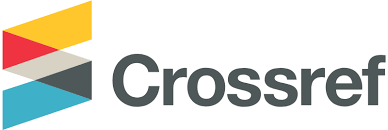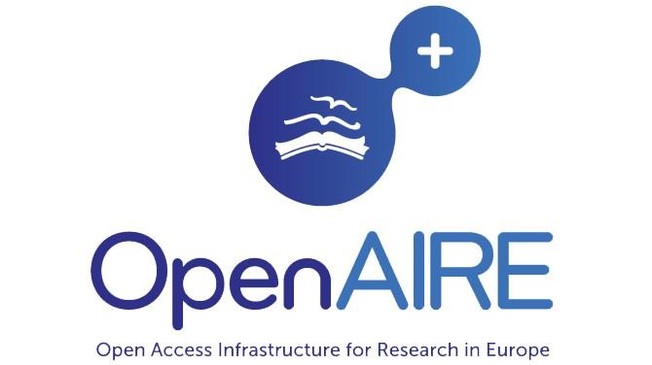THE EFFECT OF USING PHET IN THERMODYNAMIC PROCESS MATERIAL ABOUT CRITICAL THINKING SKILLS SENIOR HIGH SCHOOL STUDENT
DOI:
https://doi.org/10.21009/03.1102.PF33Abstract
Abstract
Thermodynamic process material is a study of physics that is microscopic and not visible so that the learning process can use learning media in the form of PhET simulations. Critical thinking skills are one of the skills needed in the 21st century. The target of the study was a high school student with a sample of class XI MIPA MAN 1 Mojokerto. The purpose of this study was to determine the effect of the use of PhET on thermodynamic process materials on the critical thinking skills of high school students. The research method used is a quantitative method with an experimental approach with a pretest-posttest control group design. The result of this study was that there was a difference in the critical thinking skills of students in experimental classes and control classes with gain test scores in experimental classes of 0.73 (high category) and control classes by 0.36 (medium category). For the score of the effect size test with d-cohen's of 0.886. So the conclusion of this study is the effect of the use of PhET on thermodynamic process materials on the critical thinking skills of high school students with the level of effect on high categories.
Keywords: PhET, Thermodynamic, critical thinking skills
References
[2] H. M. Alhothali, “Inclusion of 21st century skills in teacher preparation programs in the light of global expertise,” International Journal of Education and Practice, vol. 9, no. 1, pp. 105-127, 2021.
[3] K. A. Monita, E. Narulita, A. S. Budiarso, “The effectiveness of local wisdom-based science teaching materials in improving high school students critical thinking skills,” Jurnal Mangifera Education, vol. 5, no. 2, pp. 141-149, 2021.
[4] D. A. Bensley, “Rules for reasoning revisited: toward a scientific conception of critical thinking,” Critical Thinking, pp. 1-36, 2011.
[5] R. H. Ennis, “Critical thinking across the curriculum: a vision,” Topoi, vol. 37, pp. 165-184, 2018.
[6] T. Fairuz, “Assessment Instrument of Critical Thinking Skills for Student on Light Interaction with Organisms,” Jurnal Studi Guru dan Pembelajaran, vol. 4, no. 1, pp. 67-74, 2021.
[7] Z. N. Ferty, I. Wilujeng, J. Jumadi, H. Kuswanto, “Enhancing Students’ Critical Thinking Skills through Physics Education Technology Simulation Assisted of Scaffolding Approach,” Journal of Physics: Conference Series, vol. 1233, no. 1, p. 012062, 2019.
[8] S. L. Fithriani, A. Halim, I. Khaldun, “Penggunaan media simulasi phet dengan pendekatan inkuiri terbimbing untuk meningkatkan keterampilan berfikir kritis siswa pada pokok bahasan kalor di sma negeri 12 banda aceh,” Jurnal Pendidikan Sains Indonesia, vol. 4, no. 2, pp. 45-52, 2016.
[9] S. G. Huber, C. Helm, “COVID-19 and schooling: evaluation, assessment, and accountability in times of crises—reacting quickly to explore key issues for policy, practice, and research with the school barometer,” Educational Assessment, Evaluation and Accountability, vol. 32, pp. 237-270, 2020.
[10] L. Indriyani, “Pengaruh Penggunaan Simulasi PhET dengan Model Problem Solving terhadap Minat Belajar Siswa pada Pembelajaran tentang Hukum Boyle dan Gay Lussac di Kelas XI IPA SMA Negeri 1 Prambanan dan SMA Negeri 2 Klaten,” Yogyakarta: Fakultas Kepengajaran dan Ilmu Pendidikan Universitas Sanata Dharma, 2016.
[11] N. R. Kapelle, B. Jatmiko, M. Munasir, I. H. Wenno, “Development of PhET-aid-based inquiry learning devices to improve student critical thinking skills,” International Journal of Multicultural and Multireligious Understanding, vol. 6, no. 5, pp. 980-990, 2019.
[12] KEMENDIKBUD, “Kemendikbud terbitkan pedoman penyelenggaraan belajar dari rumah,” 2020, https://www.kemdikbud.go.id/main/blog/2020/05/kemendikbud-terbitkan-pedoman-penyelenggaraan-belajar-dari-rumah [12 Februari 2021].
[13] KEMENDIKBUD, “Surat keputusan bersama panduan penyelenggaraan pembelajaran di masa pandemi covid-19,” Nomor: 2345/A5/HK.01.04/2021, 2021.
[14] K. Ndihokubwayo, J. Uwamahoro, I. Ndayambaje, “Effectiveness of PhET simulations and YouTube videos to improve the learning of optics in Rwandan secondary schools,” African Journal of Research in Mathematics, Science and Technology Education, vol. 24, no. 2, pp. 253-265, 2020.
[15] F. Mabruroh, A. Suhandi, “Construction of critical thinking skills test instrument related the concept on sound wave,” Journal of Physics: Conference Series, vol. 812, no. 1, 2017.
[16] E. Zuniga, “The Impact of Globalization, Economics, and Educational Policy on 21st-Century Skills and Education in Science, Technology, Engineering, Mathematics and the Science Fairs in Schools in Ireland Such as Fingal School,” Doctoral dissertation, University of Southern California, 2017.
[17] D. Muliyati, M. Nurindrasari, C. E. Rustana, “ProSim”–Designing projectile motion worksheet to support higher-order thinking skill,” AIP Conference Proceedings, vol. 2320, no. 1, 2021.
[18] R. Muskania, M. S. Zulela, “Realita transformasi digital pendidikan di sekolah dasar selama pandemi covid-19,” Jurnal Pendidikan Dasar Nusantara, vol. 6, no. 2, pp. 155-165, 2021.
[19] S. Natalia, “Pengaruh Penerapan Simulasi PHET Terhadap Peningkatan Hasil Belajar Siswa Kelas XI IPA SMA Negeri 1 Ngemplak Pada Materi Pembiasan Cahaya Berdasarkan Teori Bloom Skripsi,” Yogyakarta, 2018.
[20] S. F. Nissa, A. Haryanto, “Implementasi pembelajaran tatap muka di masa pandemi Covid-19,” Jurnal IKA : Ikatan Alumni PGSD UNARS, vol. 8, no. 2, pp. 402-409, 2020.
[21] I. Puspita, “PhET aplication program: strategi penguatan pemahaman pembelajaran jarak jauh pada materi radiasi benda hitam melalui percobaan berbantu lab virtual dan media social,” Jurnal Pendidikan Madrasah, vol. 5, no. 1, pp. 57-68, 2020.
[22] E. M. Ramadan, D. P. Astuti, “Application of e-handout based on PhET simulation to improve critical thinking skills and learning independence of high school students,” Journal of Physics.: Conference Series, vol. 1440, no. 1, 2020.
[23] A. A. Rohmah, B. K. Prahani, “Profile of Implementation of Free inquiry learning assisted by PhET and Critical Thinking Skills of Senior High School Students on Light Material,” Prisma Sains : Jurnal Pengkajian Ilmu dan Pembelajaran Matematika dan IPA IKIP Mataram, vol. 9, no. 2, pp. 233-245, 2021.
[24] C. E. Rustana, W. Andriana, V. Serevina, D. Junia, “Analysis of students learning achievement using PhET interactive simulation and laboratory kit of gas kinetic theory,” Journal of Physics: Conference Series, vol. 1567, no. 2, 2020.
[25] R. A. Serway, C. Vuille, J Hughes, “College Physics 8th ed,” Boston: Cengage Learning, 2018.
[26] S. A. Young, A. R. Newton, S. R. Fowler, and J. Park, “Critical thinking activities in Florida undergraduate biology classes improves comprehension of climate change,” Journal of Biological Education, 1-12, 2021.
[27] S. Sunaryo, C. E. Rustana, R. Raihanati, S. N. Khalifah, I. Sugihartono, “The effect of the use of harmonic movement phet interactive simulation in online learning process on mastering the concept of high school students,” Journal of Physics: Conference Series, 2021.




